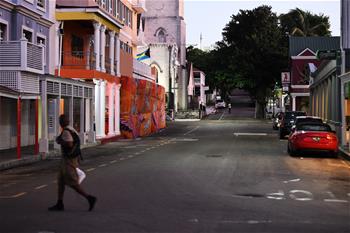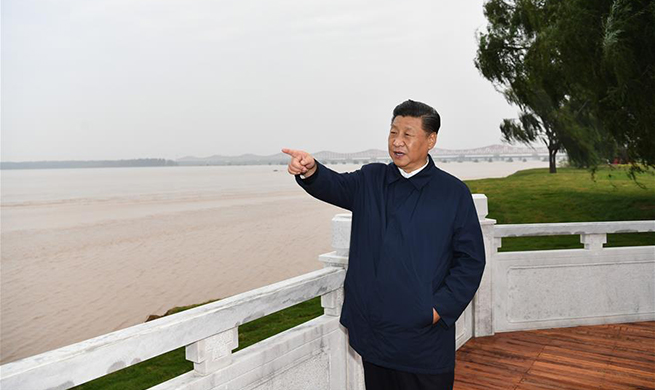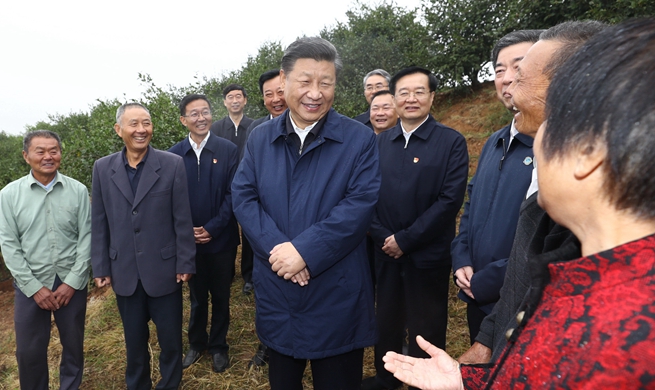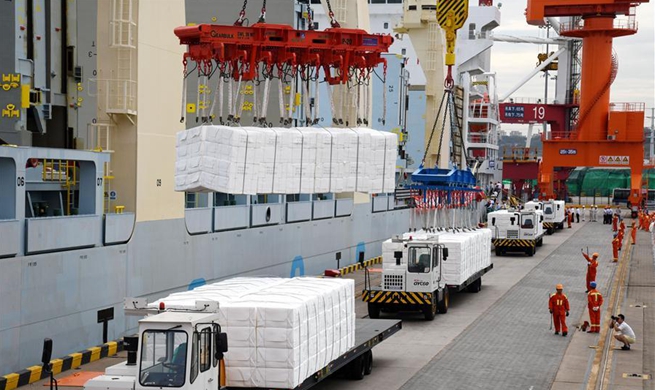STRASBOURG, France, Sept. 18 (Xinhua) -- The European Union's (EU) chief negotiator on Brexit Michel Barnier on Wednesday strongly defended the Brexit "backstop" mechanism, which is designed to avoid a hard border between Northern Ireland and the Republic of Ireland.
Barnier made the remarks at a plenary session of the European Parliament, defending the mechanism that proponents of a hard Brexit want to remove.
"It is not enough to explain to us why the backstop should be removed, we need jurisdictional responses," said Barnier.
He recalled that London and Brussels had reached an agreement on this mechanism in November 2018. "We need very concrete guarantees," he said.
Under the backstop mechanism, a seamless border would be maintained on the island of Ireland -- between the Republic of Ireland, an EU member state, and Northern Ireland, part of Britain.
The EU has long maintained that the backstop must stay so as to ensure there is no hard border on the island of Ireland, which is central to the Good Friday Agreement, a peace agreement between the British and Irish governments reached in 1998 that has guaranteed peace on the island.
"Our position is not ideological, it has never been, but pragmatic," he said. "It is in Ireland that Brexit creates the most problems and carries the highest risk ... This is the only place where the EU has a land border with the UK, in addition to a specific political situation."
"Every living animal, every product, especially food, that arrives in Northern Ireland from Great Britain, enters not only on the Irish territory but mechanically and automatically also on the Danish or Polish market. Therefore, we need controls to ensure the safety of the consumers in EU-27," said Barnier.
Proponents of hard Brexit, led by British Prime Minister Boris Johnson, strongly oppose the backstop mechanism, saying it would imply the maintenance of a tacit union with the EU. Some prefer ditching the backstop without an alternative.
If no alternative is agreed on, Britain risks leaving the EU without any deal. Johnson repeated on Monday that Britain would leave the block on Oct. 31.
The European Parliament is expected to adopt a new resolution on Brexit in Strasbourg on Wednesday.













